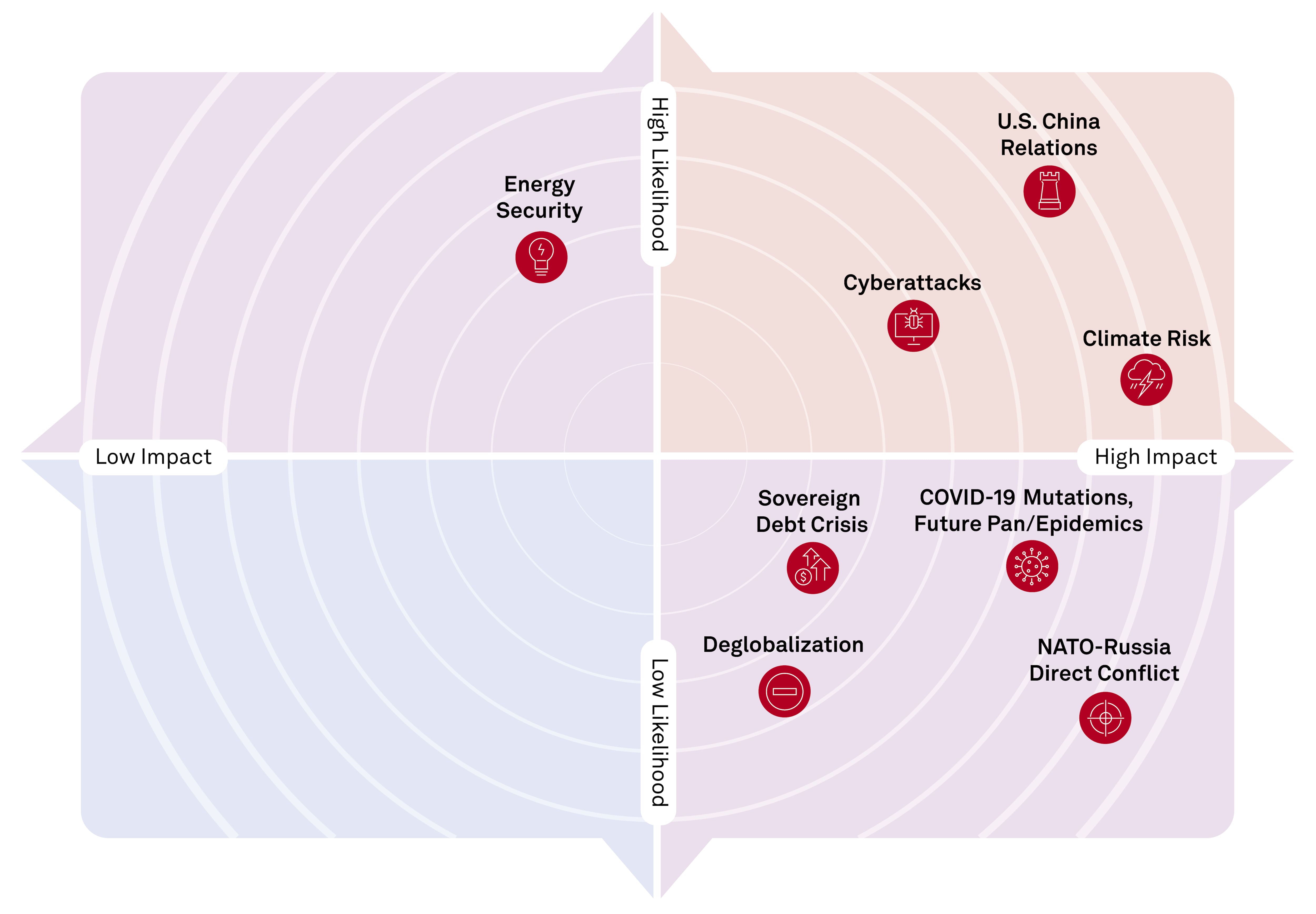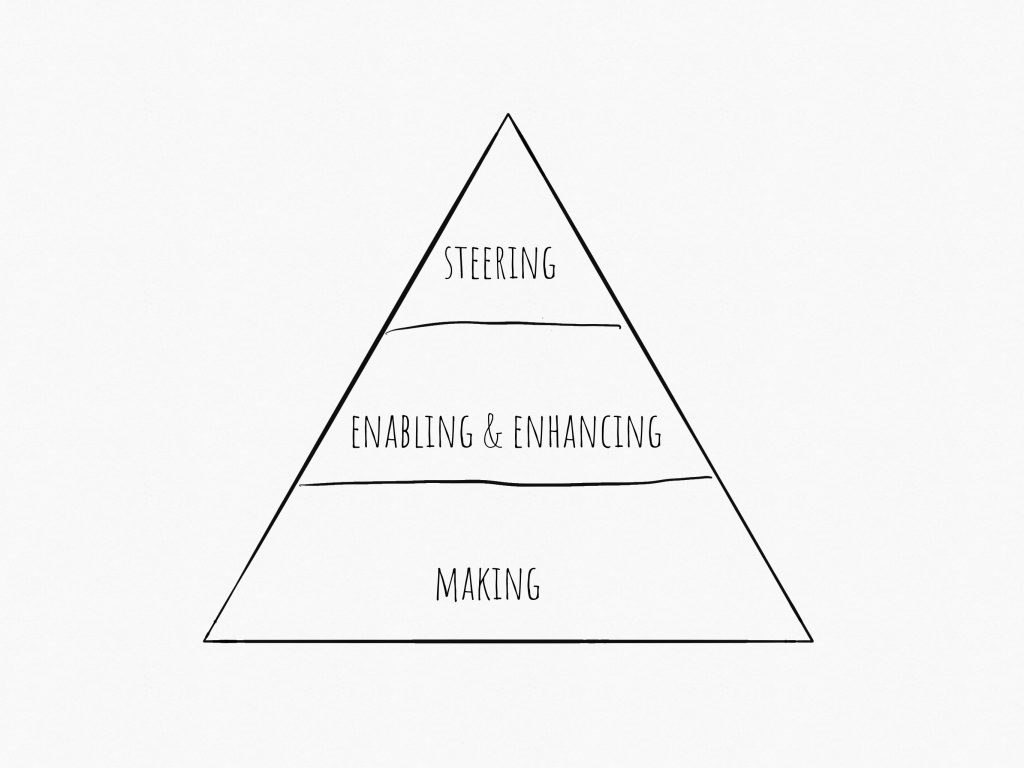Beyond China: Assessing The Full Scope Of Nvidia's Geopolitical Risks Under Trump's Legacy

Table of Contents
The Lingering Shadow of the US-China Tech War
The ongoing trade tensions and technological decoupling between the US and China continue to cast a long shadow over the global tech industry. Nvidia, with substantial operations and markets in both countries, finds itself in a precarious position, navigating a delicate balancing act. This "tech war" presents significant challenges:
- Impact of export controls and sanctions on Nvidia's sales in China: Restrictions on the export of advanced chips and technologies have directly impacted Nvidia's revenue streams in the Chinese market, forcing the company to adapt its product offerings and strategies.
- Challenges in navigating compliance regulations in both countries: The complex and ever-changing regulatory environments in both the US and China require significant resources and expertise to ensure compliance, adding to operational costs and complexities.
- Potential for further escalation of the trade war: The ongoing geopolitical rivalry between the US and China leaves Nvidia vulnerable to further escalations, including new sanctions, tariffs, or other restrictive measures that could significantly disrupt its business.
- Analysis of Nvidia's strategies to mitigate these risks (diversification, lobbying efforts): Nvidia has actively pursued diversification strategies, including expanding its manufacturing base and exploring new markets. Simultaneously, it engages in significant lobbying efforts to influence policy decisions impacting its operations.
Beyond China: Emerging Geopolitical Hotspots for Nvidia
While the US-China tech war dominates headlines, other geopolitical hotspots pose significant, albeit perhaps less publicized, risks for Nvidia.
- Tensions in Taiwan and its impact on chip manufacturing supply chains: Taiwan is a crucial hub for semiconductor manufacturing, and escalating tensions with China present a major risk to Nvidia's supply chains. Any disruption in Taiwanese production would have cascading effects globally.
- Russia's invasion of Ukraine and its effect on global semiconductor supply chains and potential sanctions: The war in Ukraine has disrupted global supply chains, impacting the availability of raw materials and components crucial for Nvidia's production. Furthermore, evolving sanctions related to the conflict pose ongoing challenges for Nvidia's global operations.
- The growing influence of other global players in the tech industry, and the potential for new trade conflicts: The rise of other global tech players and potential future trade conflicts between nations present unpredictable challenges to Nvidia's market share and strategic objectives. Increased competition and shifting geopolitical alliances add to the uncertainty.
The Trump Legacy and its Enduring Impact on Nvidia's Strategy
The policies enacted during the Trump administration have left a lasting imprint on Nvidia's approach to geopolitical risk.
- Increased scrutiny of foreign investment and technology transfer: The heightened scrutiny of foreign investment and technology transfer, a hallmark of the Trump era, continues to impact Nvidia's ability to collaborate internationally and invest in foreign markets.
- The push for domestic chip manufacturing and its implications for Nvidia: The push for reshoring chip manufacturing within the US, while potentially beneficial in the long term, presents immediate challenges for Nvidia in terms of infrastructure investment and logistical adjustments.
- Changes in global supply chain dynamics due to Trump's policies: Trump-era policies significantly altered global supply chain dynamics, forcing Nvidia to adapt its sourcing and manufacturing strategies to account for increased complexities and potential disruptions.
- How Nvidia has adapted its strategies in light of the Trump legacy: Nvidia has responded by diversifying its supply chains, investing in domestic manufacturing capabilities, and engaging actively in policy discussions to shape future regulations.
Mitigating Geopolitical Risks: Nvidia's Strategic Responses
Nvidia is proactively addressing its geopolitical risk exposure through various strategic initiatives:
- Investment in diversification of manufacturing and supply chains: Nvidia is investing heavily in diversifying its manufacturing base and supply chains to reduce dependence on any single region or supplier, mitigating the impact of potential disruptions.
- Strategic partnerships and alliances with various countries: The formation of strategic partnerships and alliances helps secure access to resources, technologies, and markets, thereby strengthening Nvidia's resilience to geopolitical instability.
- Lobbying and advocacy efforts to shape policy and regulations: Engaging in lobbying and advocacy allows Nvidia to influence policy decisions that impact its operations, proactively shaping the regulatory landscape to its advantage.
- Development of cutting-edge technologies to maintain a competitive edge: Continuous innovation and the development of cutting-edge technologies help Nvidia maintain a competitive edge, making its products and services less vulnerable to geopolitical pressures.
Assessing and Managing Nvidia's Evolving Geopolitical Risks
Nvidia faces a complex array of geopolitical risks, extending far beyond the well-known challenges posed by China. The legacy of Trump-era policies continues to shape the company's strategic decision-making, necessitating a proactive and adaptable approach to risk management. Understanding Nvidia's geopolitical risks is crucial for assessing the company's long-term sustainability and its ability to navigate the ever-shifting global landscape. Proactive risk management, including diversification, strategic partnerships, and engagement with policymakers, is vital for tech companies like Nvidia to thrive in this challenging environment. We encourage you to further investigate Nvidia's geopolitical risk management strategies and the broader implications for the semiconductor industry, furthering your understanding of assessing Nvidia's global strategy and mitigating Nvidia's exposure to geopolitical uncertainties.

Featured Posts
-
 Recordati Tariff Volatility And M And A Opportunities In Italy
Apr 30, 2025
Recordati Tariff Volatility And M And A Opportunities In Italy
Apr 30, 2025 -
 Marchs Dance World Director And Dancer Roster Changes
Apr 30, 2025
Marchs Dance World Director And Dancer Roster Changes
Apr 30, 2025 -
 Rethinking Middle Management Their Contribution To Company And Employee Well Being
Apr 30, 2025
Rethinking Middle Management Their Contribution To Company And Employee Well Being
Apr 30, 2025 -
 Ewdt Bakambw Hl Yqwd Alkwnghw Aldymqratyt Lltahl Lkas Alealm 2026
Apr 30, 2025
Ewdt Bakambw Hl Yqwd Alkwnghw Aldymqratyt Lltahl Lkas Alealm 2026
Apr 30, 2025 -
 Wayne Gretzkys Fast Facts A Quick Look At The Great Ones Life And Career
Apr 30, 2025
Wayne Gretzkys Fast Facts A Quick Look At The Great Ones Life And Career
Apr 30, 2025
